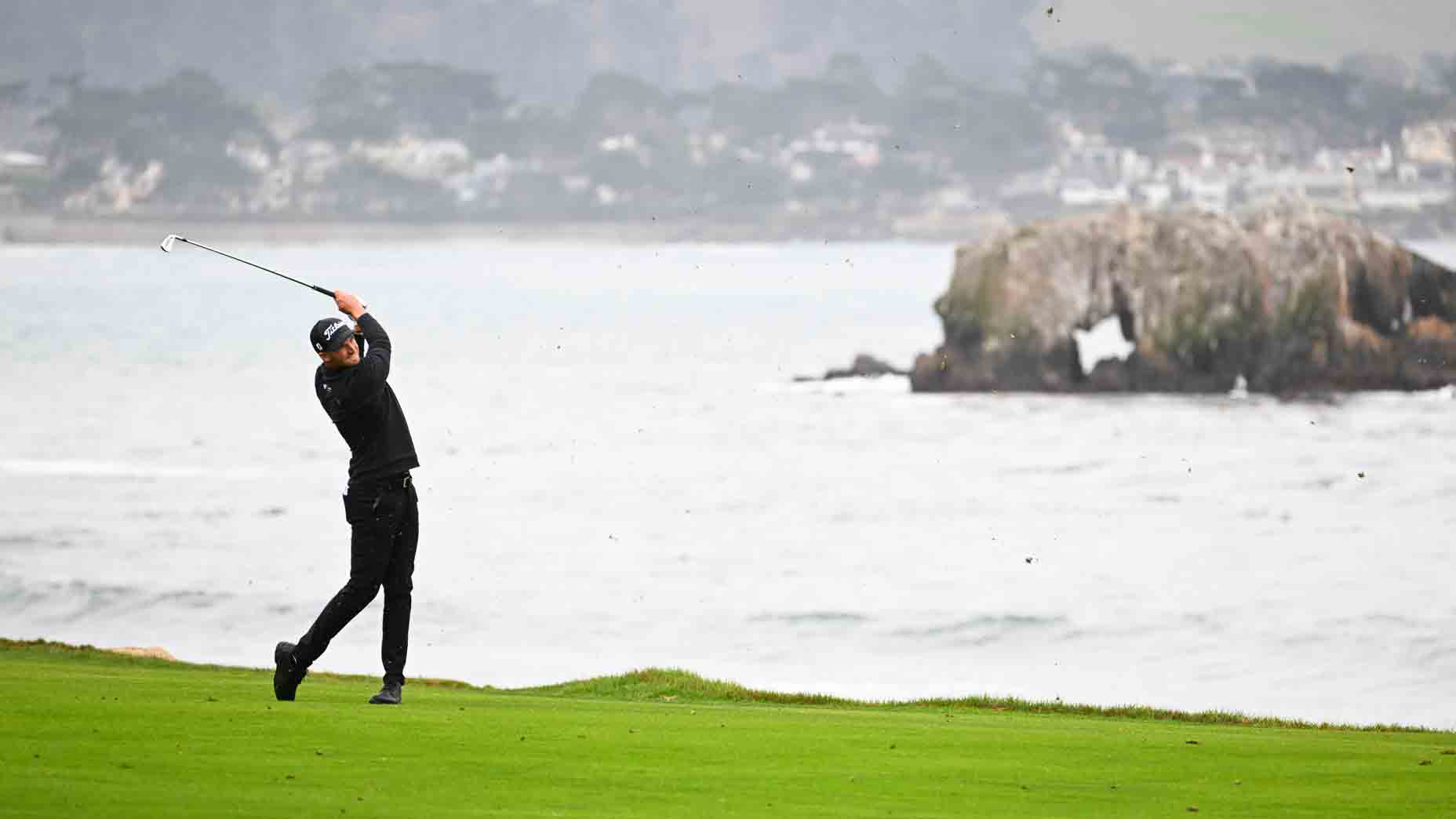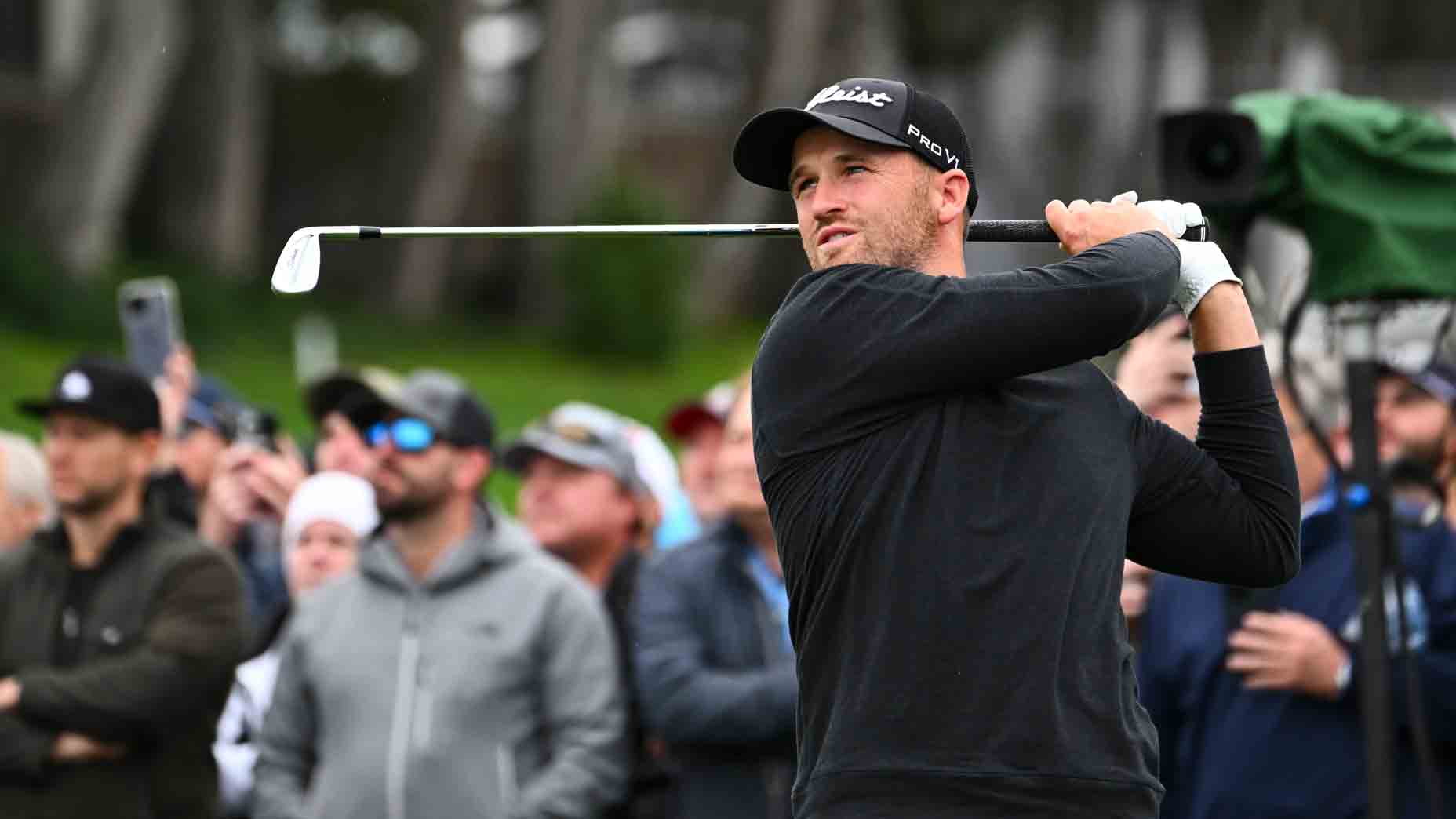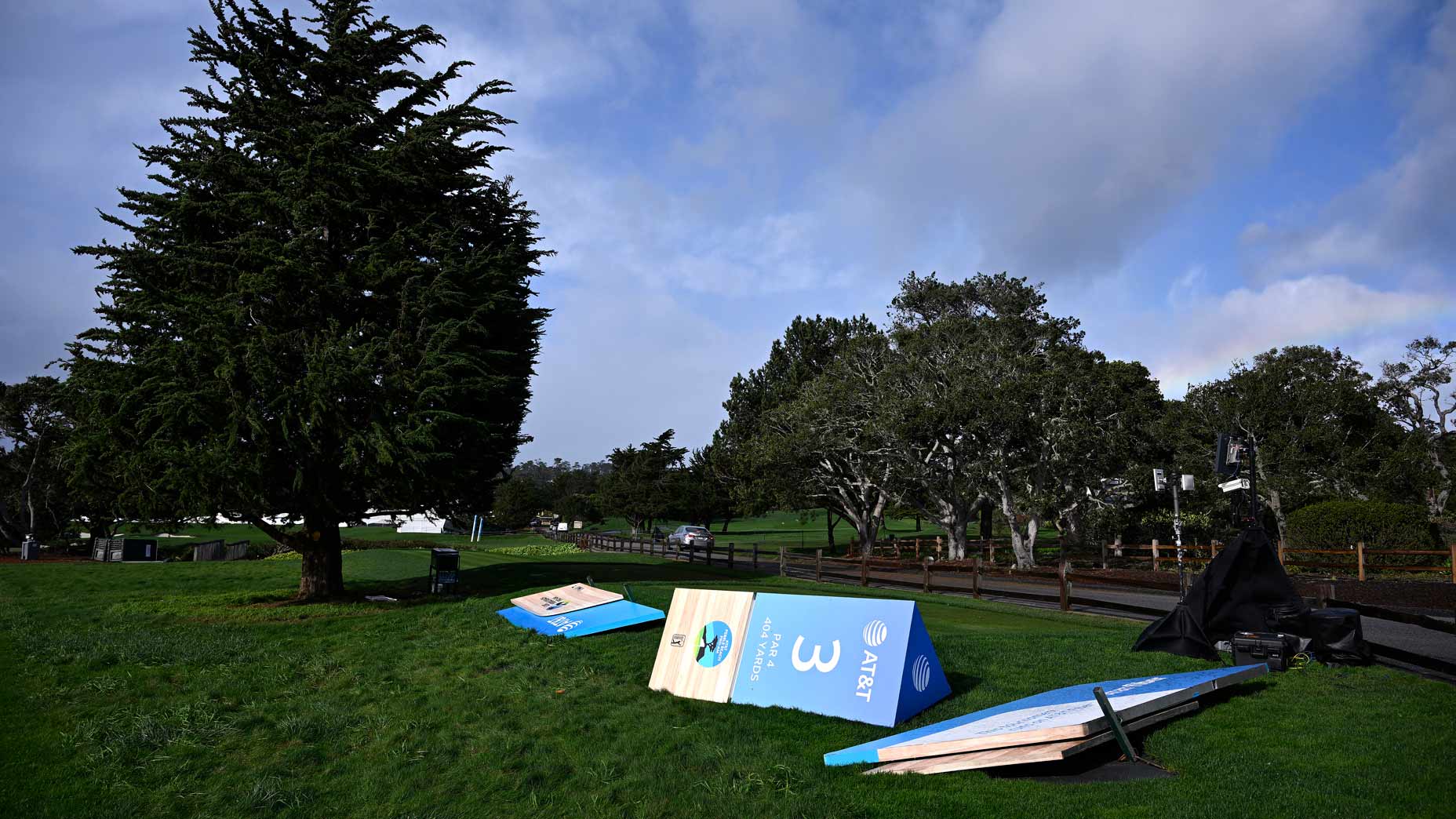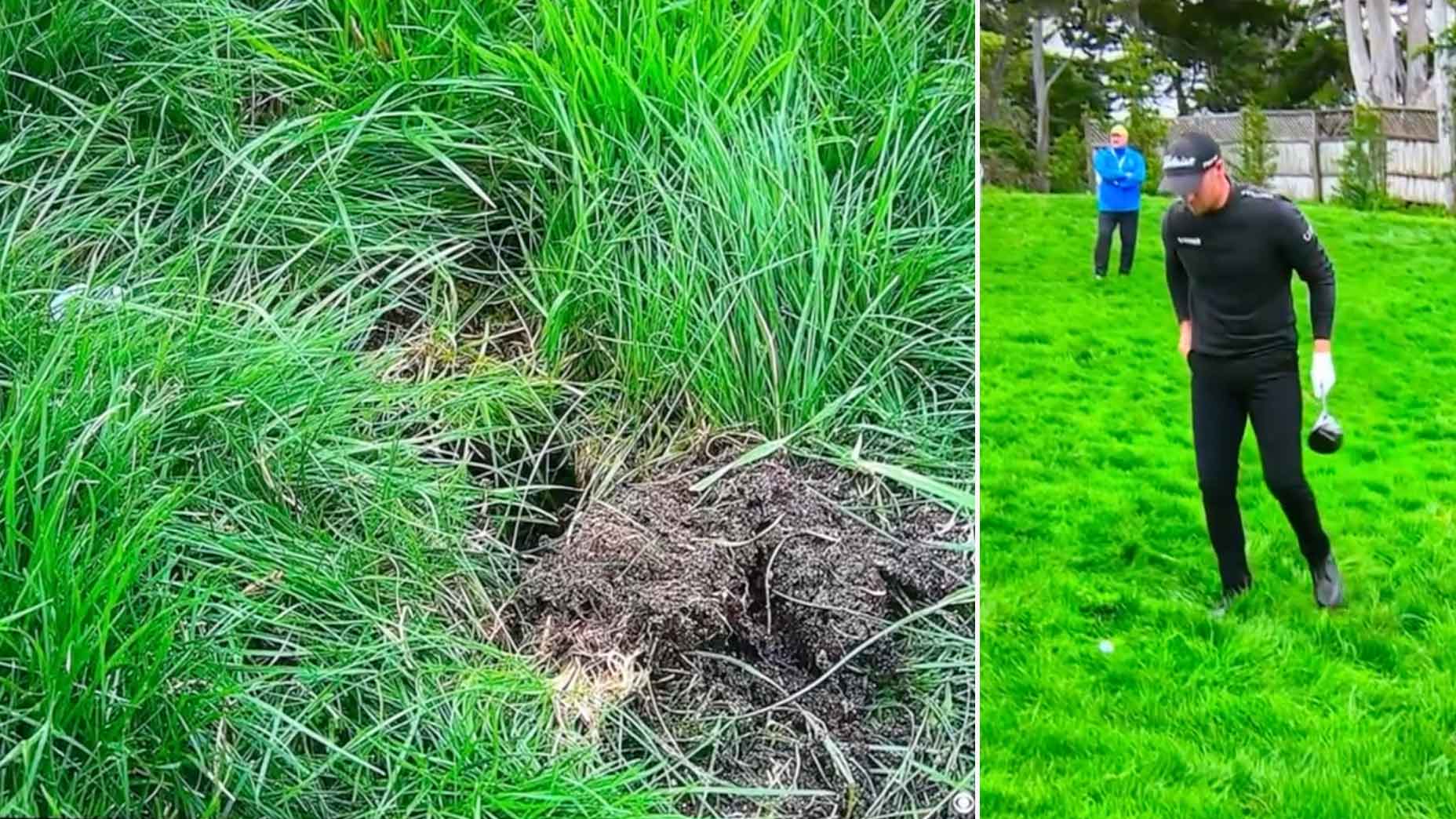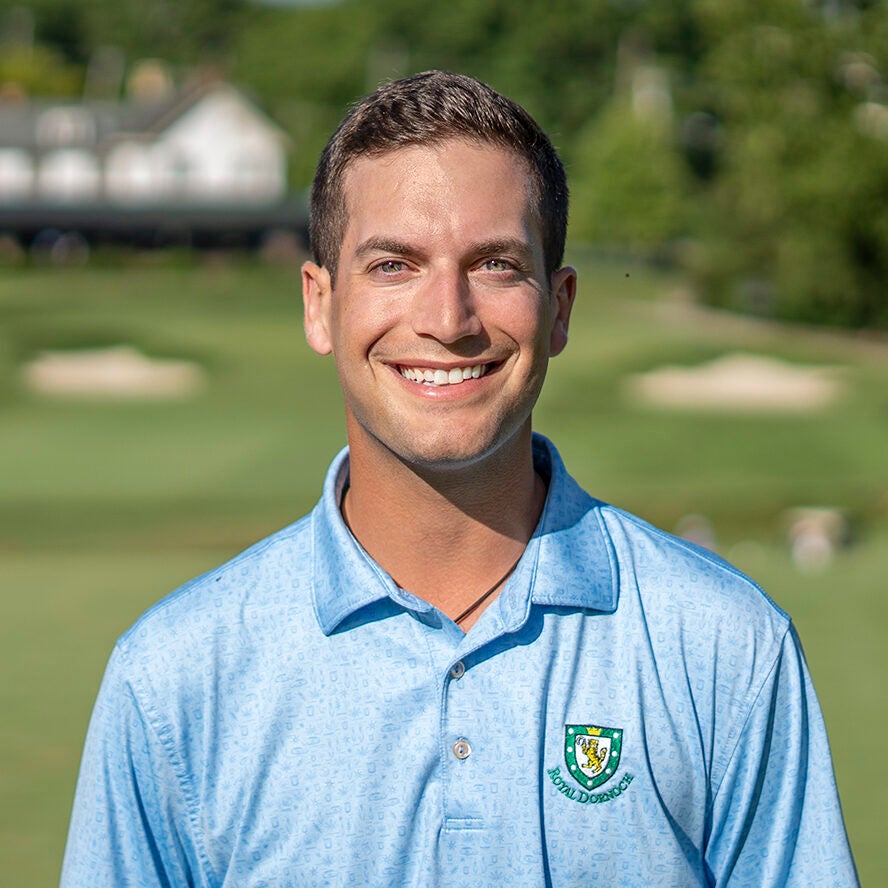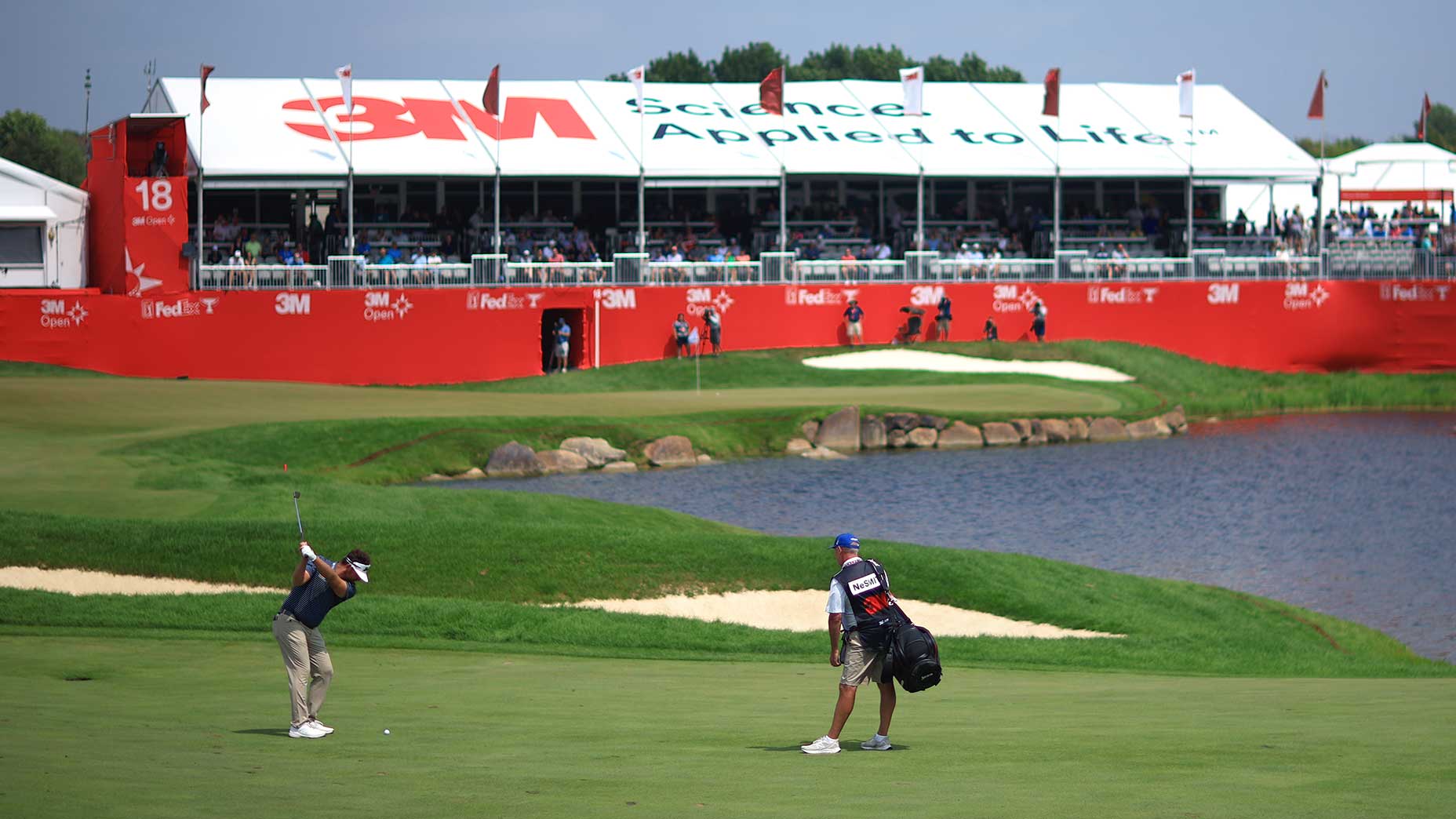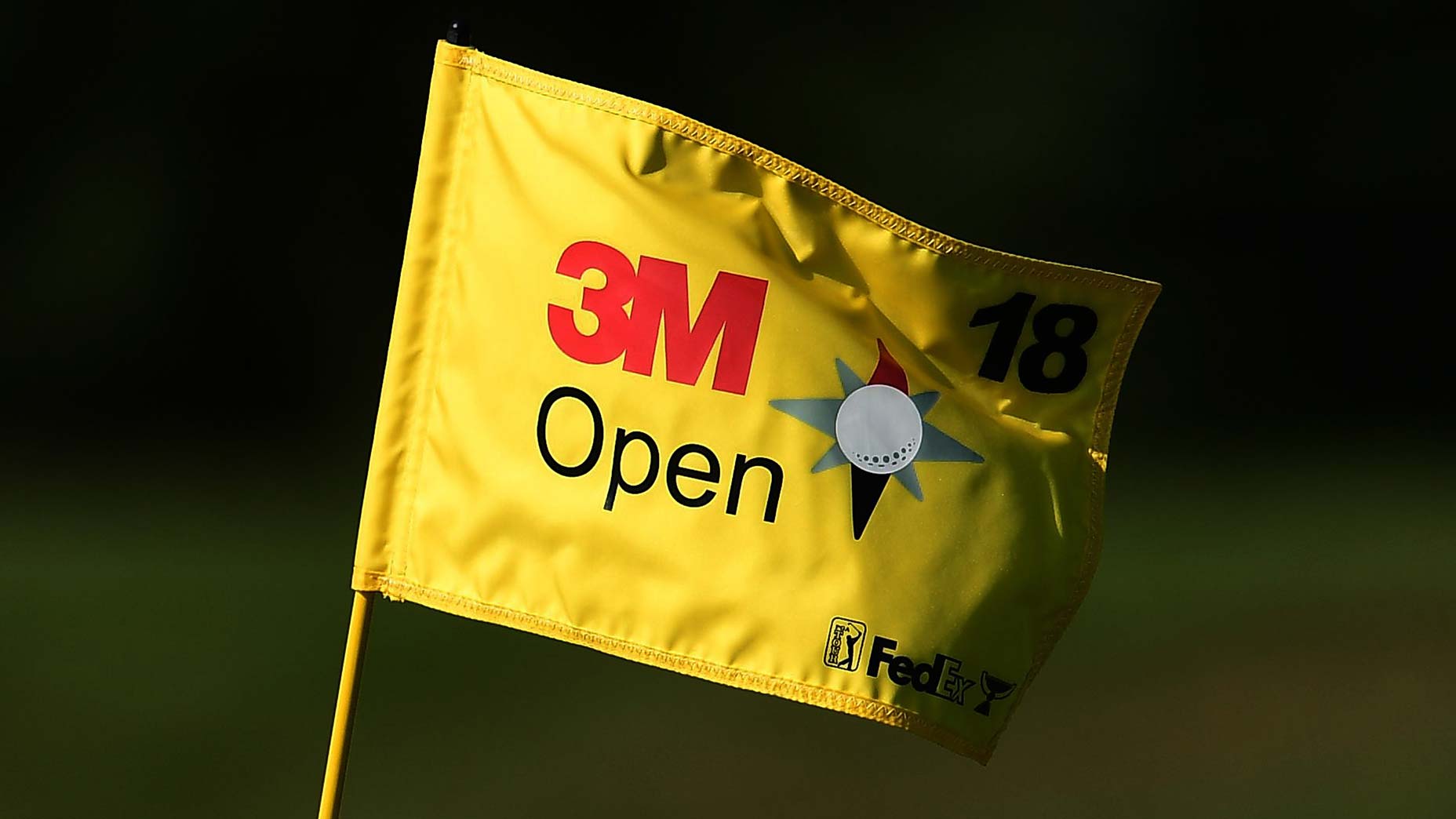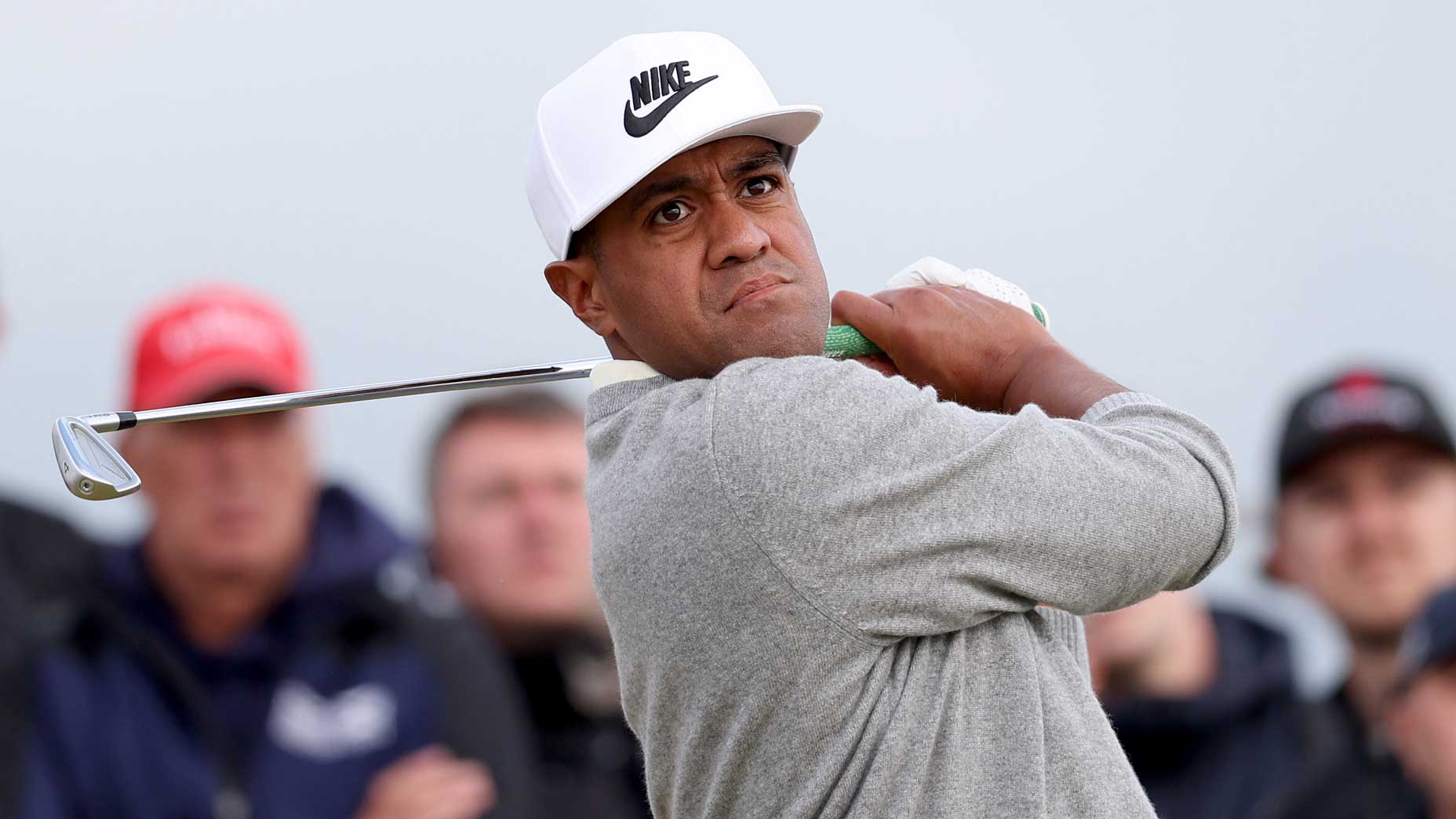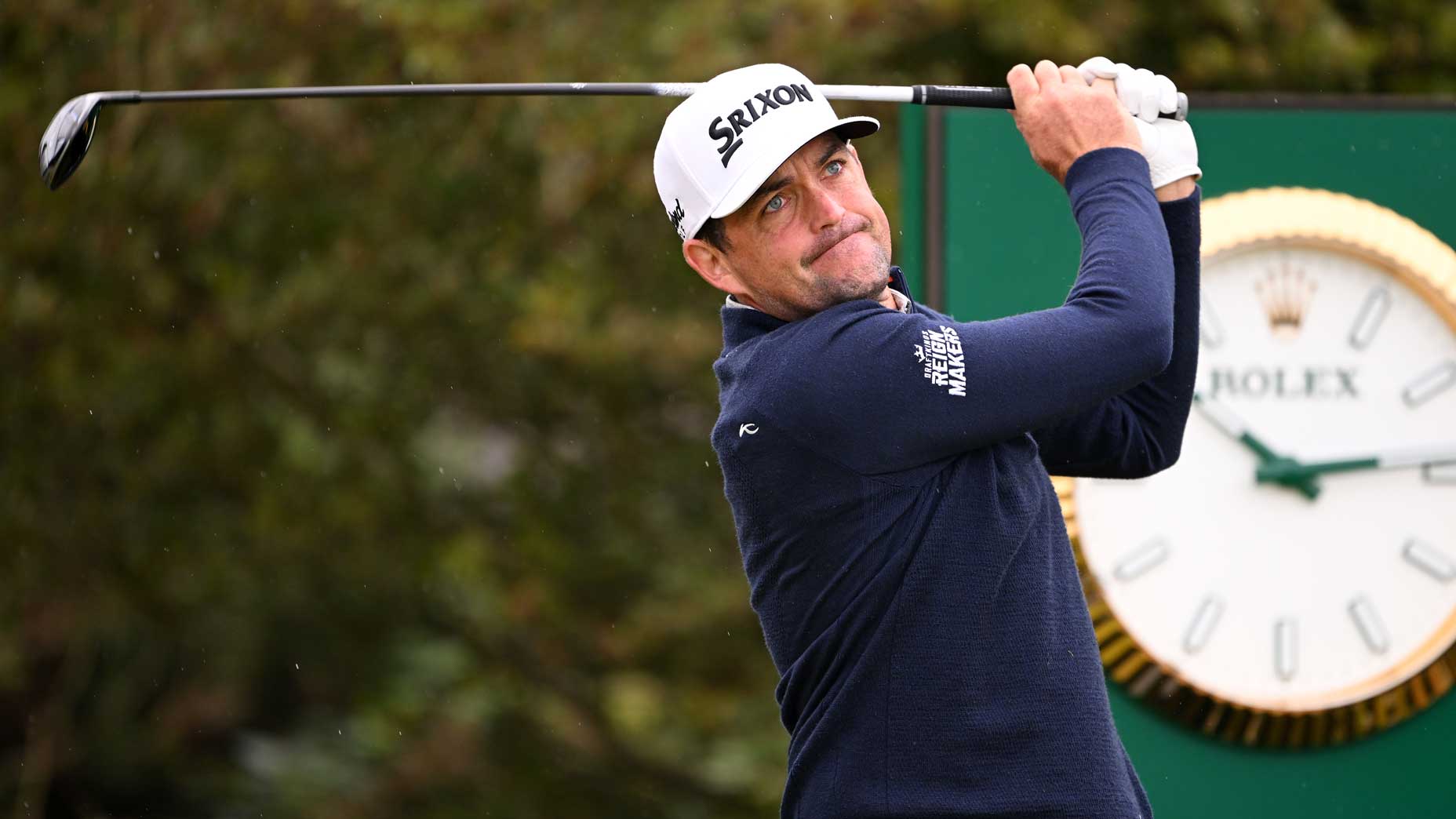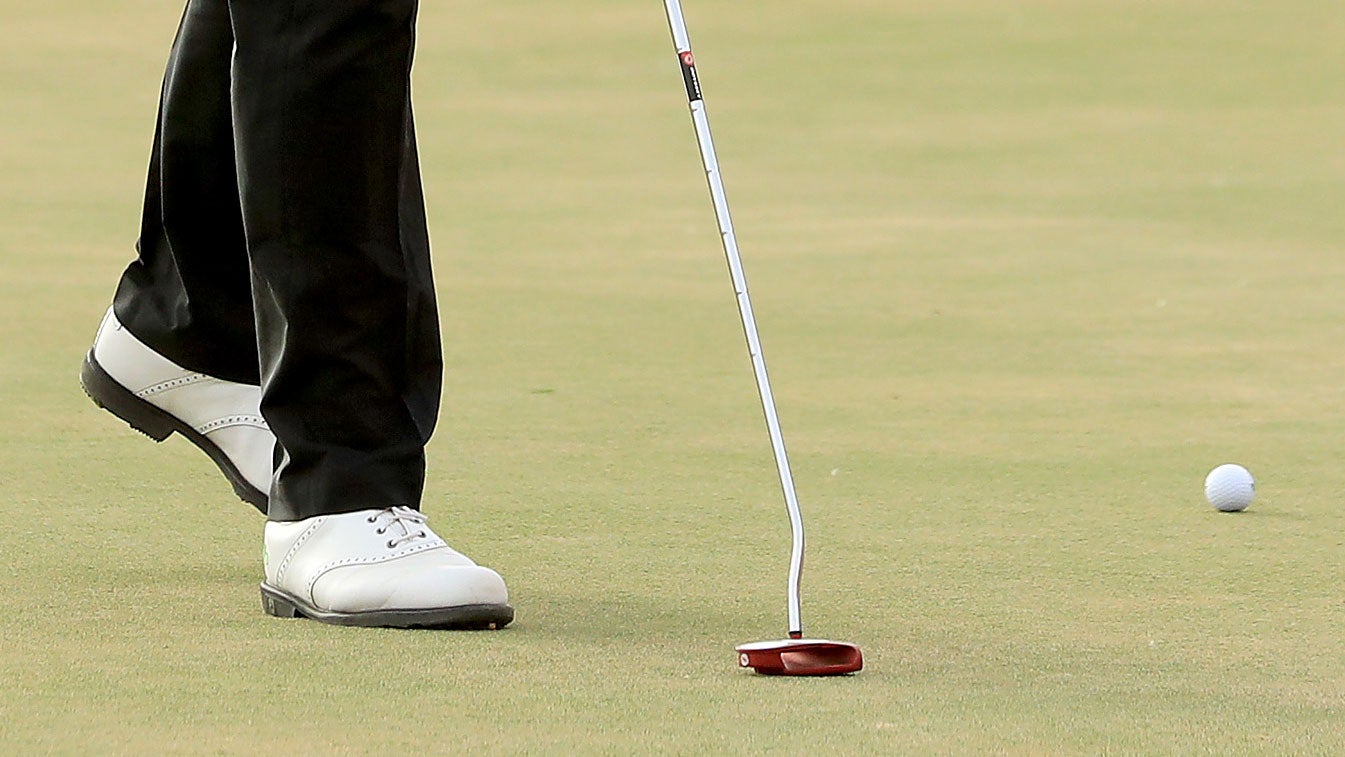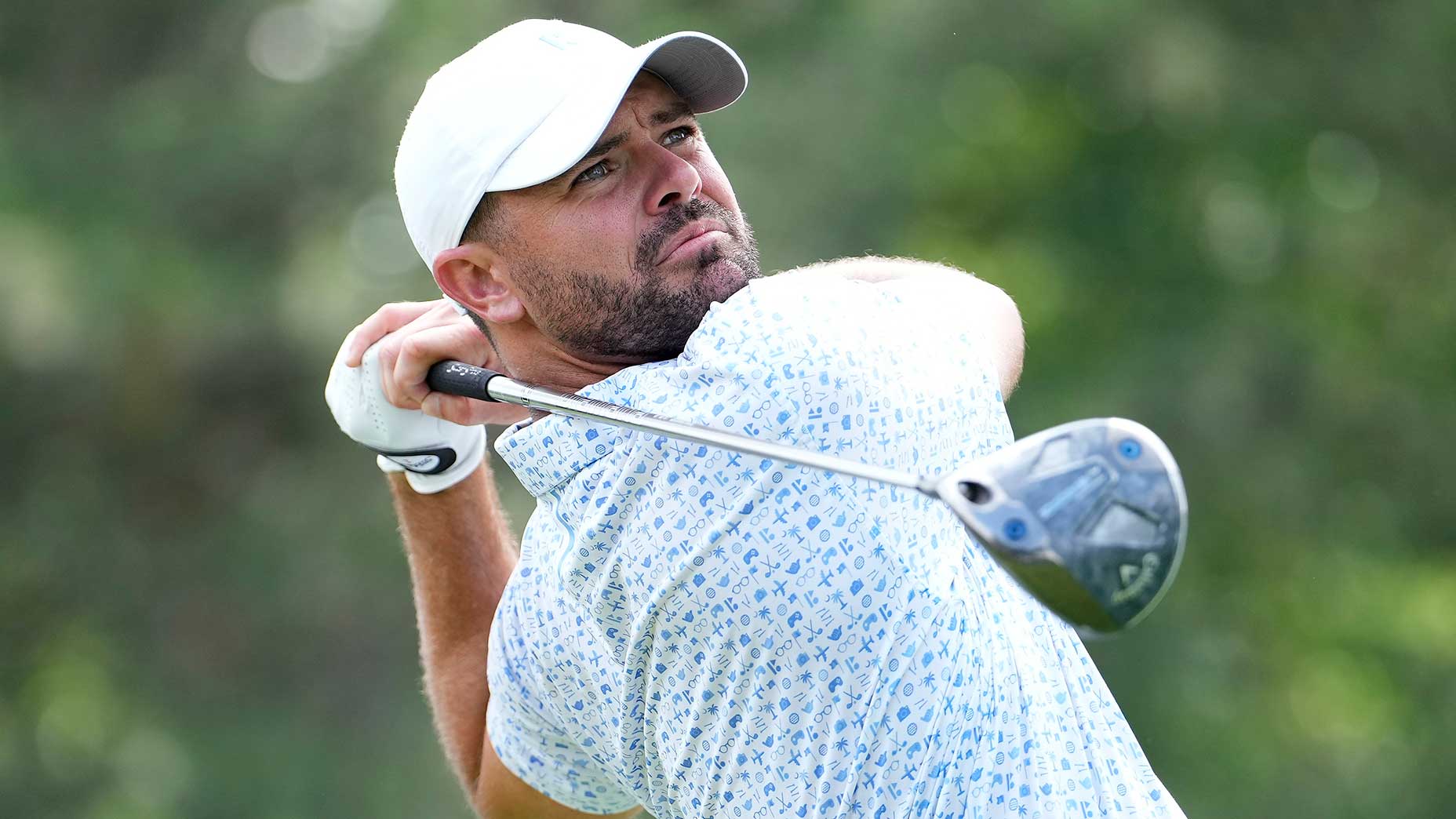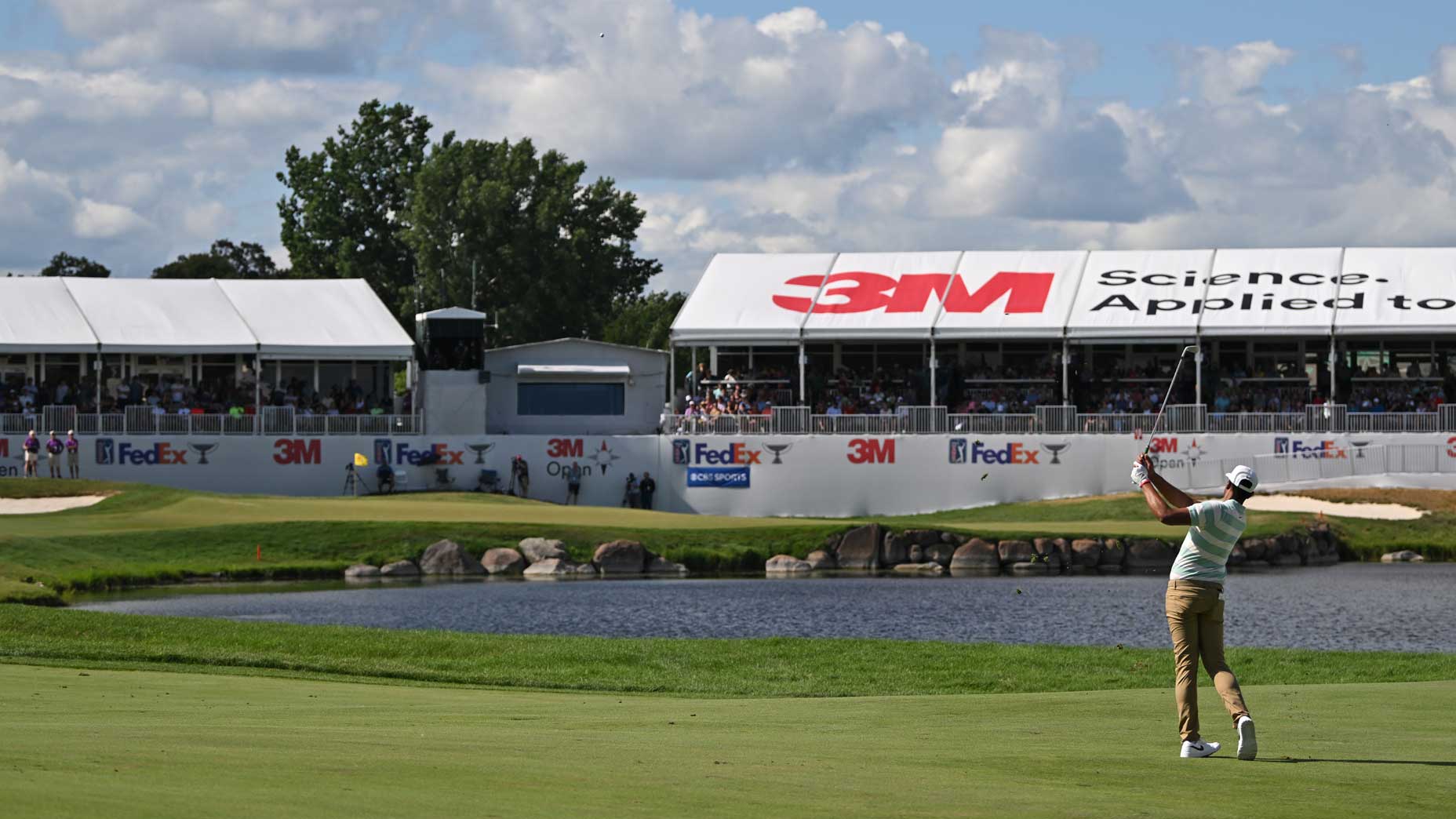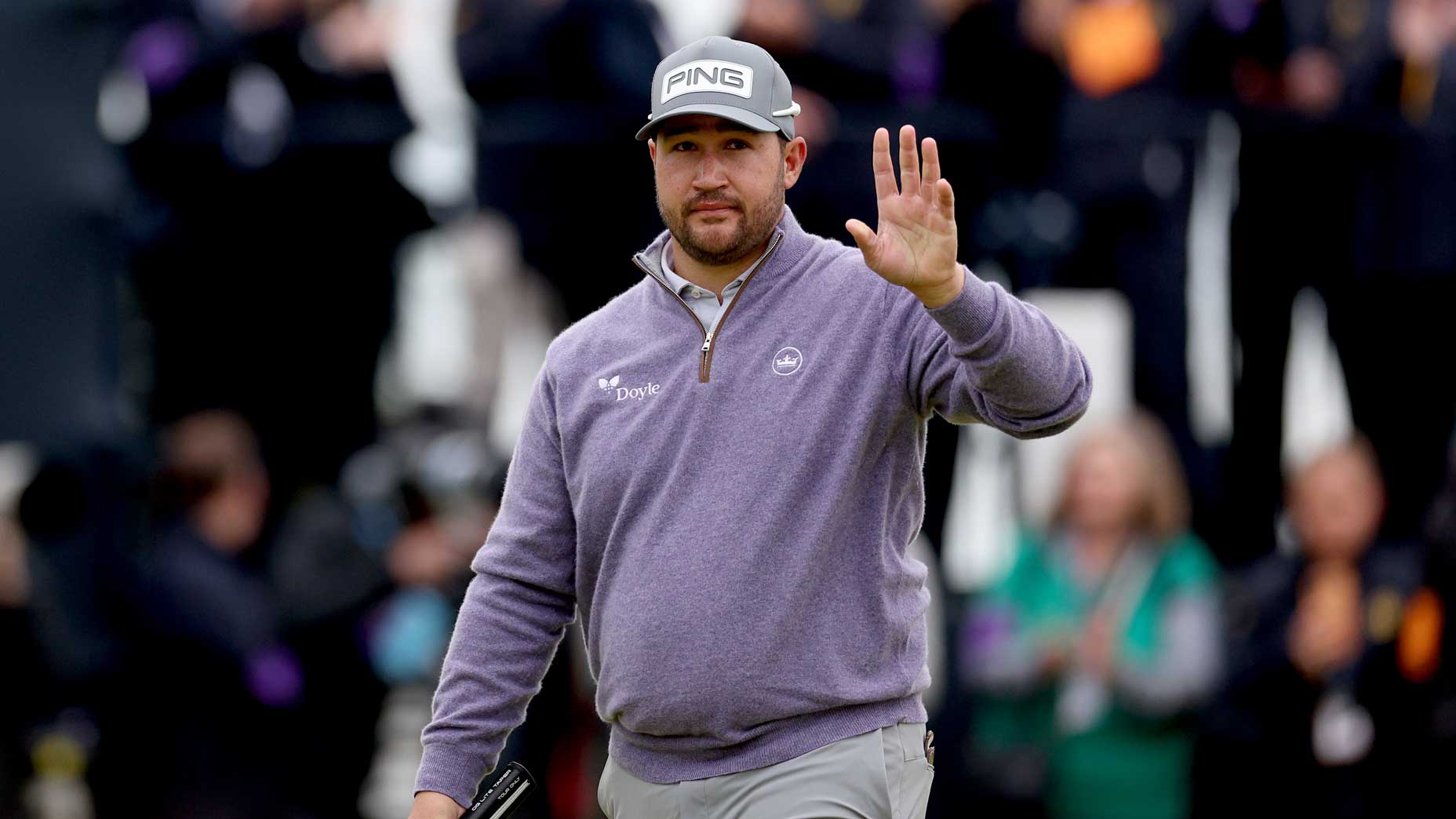PGA Tour cancels Pebble Beach final round, Wyndham Clark declared winner
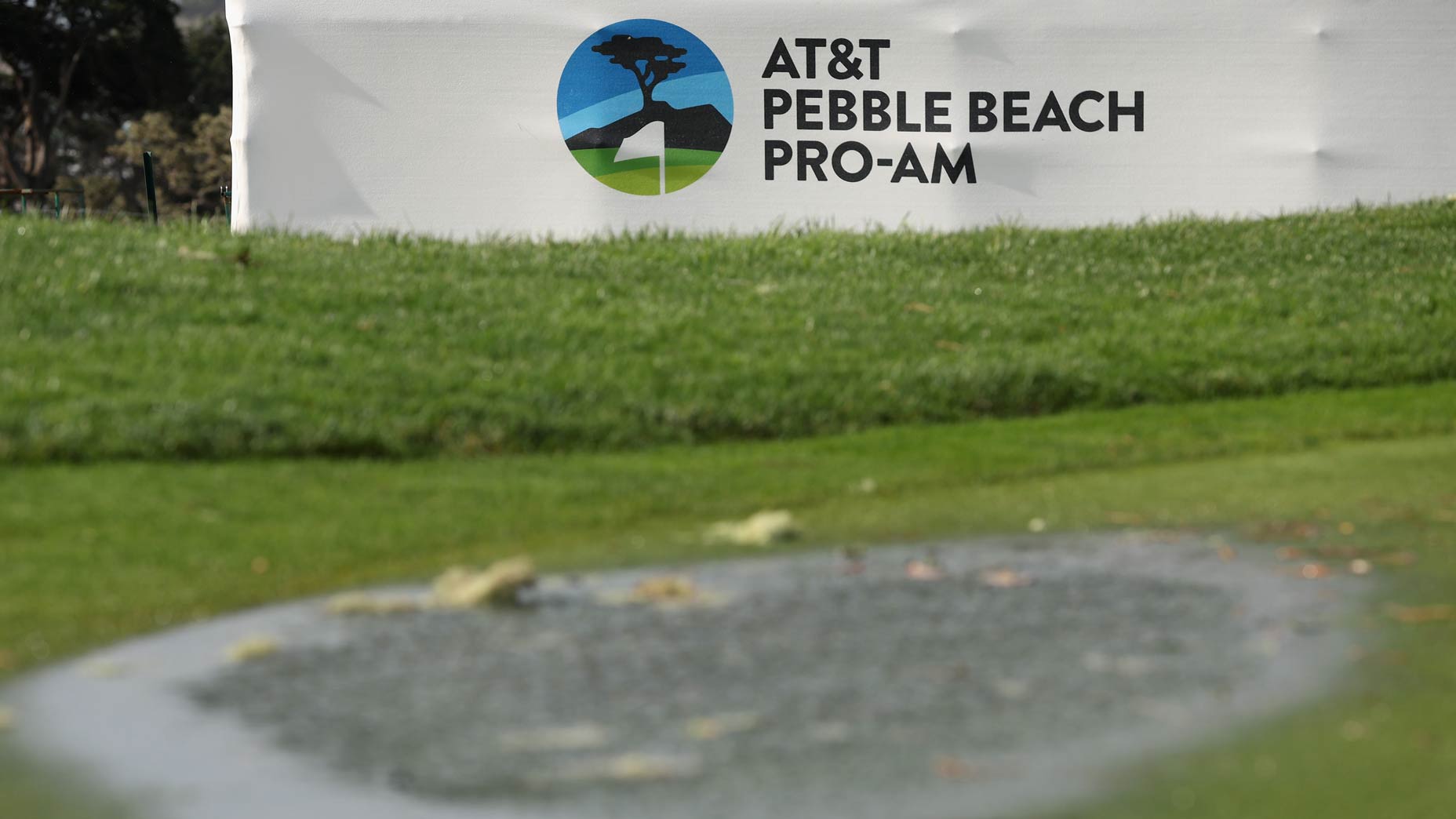
There will no golf on Monday at Pebble Beach.
Christian Petersen/Getty Images
The 2024 AT&T Pebble Beach Pro-Am is already over.
Despite initially postponing the final round of the $20 million Signature Event to Monday due to inclement weather, the PGA Tour made an about-face late Sunday night and said “out of an abundance of caution for the safety of all constituents” play would be canceled Monday. The tournament results through 54 holes are now final.
The Pebble Beach area is under Shelter in Place order by Monterey County until early Monday and after consulting with county emergency authorities, the PGA Tour announced the cancelation of the final round in a statement Sunday night.
You can read the PGA Tour’s statement in full below:
“The storm affecting the Monterey Peninsula throughout the day Sunday is forecast to continue into the early hours of Monday with very strong winds. Although conditions are forecast to improve through the morning Monday, after consultation with Monterey County emergency authorities, who have implemented a Shelter in Place order until early tomorrow morning for the greater Pebble Beach community, and out of an abundance of caution for the safety of all constituents, there will be no play on Monday. Therefore, in accordance with the PGA TOUR Regulations the tournament results will be final through the conclusion of 54 holes.”
Shortening the tournament to 54 holes means Wyndham Clark, who started the third round six back of the lead and fired a 60 Saturday to jump into the lead by one over Ludvig Aberg, picks up his third PGA Tour title.
The tournament had been plagued by poor weather all week. The grounds were closed to the public for Wednesday’s practice round and the entire tournament was played under preferred lies after heavy rains saturated the course.
More rain came Saturday night and into Sunday, but the real damage from the storm came from strong winds, some reported gusts over 60 mph, that battered California’s central coast all day. Golf Channel’s Todd Lewis reported Sunday afternoon that there was “extensive damage” to the golf course from falling trees, camera towers and hospitality tents.
The main road in and out of Pebble Beach, 17 Mile Drive, was still closed due to high winds Sunday night.
It’s the first 54-hole event on the PGA Tour since the 2016 Zurich Classic of New Orleans. The Pebble event was shortened six times since 1974 before this week, the last coming in 2009 when Dustin Johnson won.
Knowing the forecast, many players said they had to play the third round with the idea that it could potentially be the final round.
“I definitely thought about it last night and this morning with everyone saying how bad the weather’s going to be,” Clark said Saturday night. “All right, well, you’ve got to have that mentality that today’s the last day so try to go for broke.”
He went out in 28, tying the course front nine record and then finished with a 60, breaking the course record by a shot.
Last year’s U.S. Open winner had an eagle putt for 59 on the 18th green, but it stopped just 7 inches short of the cup. He told CBS afterward that he didn’t want to risk three-putting, knowing he was in contention.
“To shoot 59 would have been amazing, but I also know the tournament is on the line, so I wanted to make sure I had good speed,” Clark said. “But to have a tap-in birdie was pretty special too.”
When Aberg missed his eagle try about an hour and a half later, that gave Clark the one-shot lead that eventually would be the difference.
Editor’s note: Interested in a key to Clark’s victory? Click here for this story from GOLF’s Nick Piastowski. Or scroll below.
Six days ago, Wyndham Clark’s head wasn’t on 60, the number he shot Saturday, a record at one of the country’s most celebrated tracks, Pebble Beach. Nor was it on a lead, the position he held through three rounds at the Pebble Beach Pro-Am, an event now deemed to be “signature” by the PGA Tour. His thoughts were far from the nearly 200 feet worth of putts he dropped.
Nah, last Sunday, on a Pebble practice green, with some guy he just met, Clark was just staring at nine putters. Wondering.
He’d broken through last year. A victory at the Wells Fargo. A month later, he won the U.S. Open. There, he sliced and diced L.A. Country Club. But then he dipped. He said his team expected a letdown. You start to think, though.
Would the slump stay? Would he bounce back?
Why weren’t these freaking putts dropping?
Irritating. A real golf tee in his saddle. He flew in early for this week’s event, though. His team hooked him up with a new putting guru. The thought was a check-in. A word or two. They worked for three or so hours. Ideas were tossed out. Why not switch up the putting style? Go cross-handed? He’d given that a go in December, at the Hero World Challenge. He went with it again.
Why not try that no-line putter? It was sitting among the aforementioned nine. They were positioned kinda like a putter version of the Bachelor/Bachelorette shows.
Clark asked it out.
Ooh, that’s different, he thought. Nothing revolutionary, of course. But the ball was rolling. Things clicked. Odyssey’s no-line Ai-One Jailbird was in the bag.
“A lot of big changes,” Clark said, “but when you were as — when you’re in a spot where I was mentally in putting, you kind of needed a change, just something totally different so you couldn’t complain or have those same feels that I had in previous tournaments.
“So yeah, a lot changed, but I think not having the line on the putter’s been the biggest thing for me.”
And that was that. At least that was the plan. No more putting talk. It was an idea from his sports psychologist, Julie Elion. She’s been key on his run.
“Yeah, the brunt of our work has been on the putting recently,” Clark said. “We’ve been so focused on it, and she kind of told me — she told me this week, she said let’s stop having goals for putting and let’s just move on. We’re putting too much emphasis on the putting. We were trying to have the best attitude we could possibly have, especially coming into greens like this where they are really bumpy, so slopey and it makes it really hard to make putts.
“So I was really just trying to focus on making the best stroke I can and regardless of where the ball goes, even though everyone tries to do that, it’s been really hard for me lately. And I’ve done a good job this week of that and I think my patience the first two days on the greens really paid off because obviously I made a lot of putts today.”
Yeah, yeah he did.
Notably, he started slowly. An even-par 72 during the first round at Spyglass Hill. A five-under 67 during the second round at Pebble, but he had bogeyed two of his last five holes. A par on the 1st hole at Pebble on Saturday. And then?
The hole looked as big as the nearby Pacific. The putting was graceful as the birds soaring overhead.
A 38-foot, 11-incher on the par-5 2nd. That was for eagle. A 9-foot, 7-incher on the par-4 4th. That was for birdie. A 42-foot, 2-incher on the par-5 6th. That was also for eagle. A 2-foot, 9-incher on the iconic par-3 7th. That was for birdie. A 29-foot, 5-incher on the par-4 8th. That was for birdie. A 24-foot, 7-incher on the par-4 9th. That was for birdie. That equaled 150 feet, 10 inches of putts made — over just the front nine. Stats guru Justin Ray reported that Clark’s total was the most by a pro on the front nine at the event over the past 20 years — by 24 feet, 7 inches. Clark had also fired a front-nine 28, which Ray noted tied the tournament’s front-nine record, recorded three other times (Spike McRoy, during the first round in 2001; Davis Love IIII during the fourth round in 2001; and Brent Schwarzrock, during the first round in 2002.)
But you saw the score in the first paragraph. There was more. Clark dropped a 3-foot, 8-incher on the par-4 10th. He dropped a 15-foot, 6-incher on the par-4 11th. His putt on the par-3 12th was perhaps his best, though. From the tee, he hit into a greenside bunker. He struggled with his second shot. It finished just above another bunker. The righty opted to hit it lefty. His ball finished on the fringe, 25 feet, 8 inches away.
He made that. A bogey. But he didn’t spiral.
He followed with birdie putts on the par-4 13th (12 feet, 8 inches) and the par-5 14th (4 feet). Putts on the par-4 16th (5 inches) and the par-3 17th (5 inches) came up agonizingly short. So did his bid on the par-5 18th, for the magical 59. Only 12 players in PGA Tour history have gone sub-60. Clark missed his penultimate putt by 7 inches. But he made his 60th stroke. No one at Pebble has gone that low. The course tournament record is a 62, set four times (Tom Kite in 1983; David Duval in 1997; Patrick Cantlay in 2021; and Matthias Schwab in 2022). Hurly Long shot a 61 during a college event in 2017. Notably, there’ll be an asterisk on Clark’s score, as lift, clean and place was in play, but that’s not to say dude didn’t hit shots, though. He rolled the rock, too. In the end, he made 189 feet, 9 inches of putts.
And now he might be your winner. A storm is forecast for Sunday. More rain is expected in the days ahead. There’s a chance they’ll call this after 54 holes.
Nah, six days ago, he wasn’t thinking of any of that, either.
“Even though sometimes I didn’t know where I was going with the putting, I had to believe that it was eventually going to come back,” Clark said. “It’s honestly more than anything it’s just really rewarding to finally make some putts, see some putts.
“I feel like I rewarded myself with being patient and then having a great day today.”

